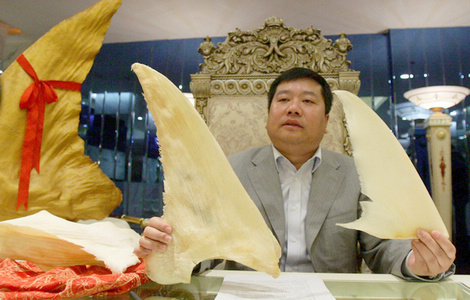 |
|
|
|
|||||||||
Editor's note: There's no better time to raise questions than the NPC/CPPCC sessions, which bring together China's top policymakers. China Daily asks experts from different countries what they wish they could ask the members and delegates about topical issues. Reporters Qiu Quanlin and Zhou Yan gather the answers.
Pierre Defraigne is the executive director of the Madariaga College of Europe Foundation. He would like to ask how China is coping with productivity constraints, as labor supplies will soon level out. And he has some preliminary thoughts. "I think China must put education, technology and institutional innovation (by dynamic Chinese champions and SMEs) on top of its priority list, making sure that it uses to the full the intellectual capital and the formidable energy of its population."
More tax breaks and financial policies are needed to help small businesses better cope with productivity constraints, a deputy to the National People's Congress said.
"The central government should improve its tax and financial system to help businesses reduce the burdens of productivity constraints," said He Youlin, an NPC deputy from Guangdong province.
In most of the nation's manufacturing cities, productivity constraints mainly refer to rising labor and production costs and labor shortages, which have crushed the profits of many small businesses in recent years.
"Given the domestic and overseas economic situations, manufacturers in Guangdong province have often been encouraged to upgrade their businesses. But they can hardly do that without incentives," he said.
He, who is also headmaster of Sun Yat-sen Memorial Middle School, inspected many small enterprises in Zhongshan, a manufacturing hub in Guangdong, before he came to Beijing to attend the annual NPC session, which opens on Monday.
"Zhongshan has many small businesses ranging from ceramics and lighting to home appliances, which play a big role in creating jobs and contribute much to the local economy," he said.
However, many businesses, especially SMEs in Guangdong, a major manufacturing hub in South China, have reportedly closed in response to rising production and labor costs in recent years.
"Specifically, the government should announce tax cuts for such businesses. For companies, they should attach more importance to innovation and technology upgrading to better cope with the constraints," he said.
Ou Zhenzhi, director of the Guangdong provincial department of human resources and social security and an NPC deputy, said the provincial authorities would take steps to help find more workers for manufacturing businesses, which have faced ongoing labor shortages in recent years.
"For example, we launched a cooperative scheme between industrial zones and vocational schools, under which students get priority in hiring in industrial zones after graduation," Ou said.
"The deteriorating labor supply situation in the coastal regions is irreversible, given ever-rising living costs in these industrialized areas and the trend for unskilled workers to follow labor-intensive manufacturers westward," said Zong Qinghou, an NPC deputy and chairman of Hangzhou Wahaha Group Co, the country's biggest beverage producer, based in Zhejiang province.High inflation has also led workers to seek pay hikes that are unaffordable for some companies dealing with skyrocketing prices for raw materials, Zong said.
The cost of raw materials for Wahaha, for instance, rose by 2 billion yuan (317.5 million) in 2011, causing the company to miss its financial targets for the year.
Zhuang Chuanqi, president of Nice Group, a toothpaste and washing powder maker, and an NPC deputy, said the company, which is located in the third-tier inland city of Lishui in Zhejiang, hasn't faced labor shortages because of the city's lower living costs.
Wu Ying, iPad, Jeremy Lin, Valentine's Day, Real Name, Whitney Houston, Syria,Iranian issue, Sanyan tourism, Giving birth in Hong Kong, Cadmium spill, housing policy

|

|

|

|

|

|